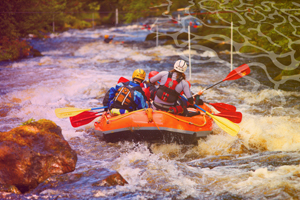A RAPID response to boost water resources resilience

Ofwat, the Environment Agency, and Drinking Water Inspectorate have joined forces
-
New: Regulators’ Alliance for Progressing Infrastructure Development (RAPID)
-
Brings together people from Ofwat, Environment Agency and the Drinking Water Inspectorate to improve regulation and remove barriers
-
The new team will help companies meet long term water resources challenges
A team of people from Ofwat, the Environment Agency, and Drinking Water Inspectorate are being brought together to improve regulation and remove barriers to help the sector respond to long term water resources challenges.
The new Regulators’ Alliance for Progressing Infrastructure Development (RAPID) will make sure regulation enables strategic schemes to improve resilience of water supplies into the future. These schemes might include transfers between regions in England and developing joint infrastructure, such as shared reservoirs.
Climate change, increases in population and other environmental pressures mean that the availability of water resource varies geographically. The East and South East of England are generally ‘water stressed’, while in other areas of the country there are some surpluses of water. This creates the potential for water transfers between regions.
Defra, Ofwat, Environment Agency and the Drinking Water Inspectorate jointly wrote to companies to set out the need for co-ordinated leadership to meet the future needs of customers, other water users and the environment. The letter set the expectation that, through the 2019 price review, tangible progress should be demonstrated in increasing collaboration and developing creative strategic water supply solutions.
The current regulatory, commercial and operating frameworks have been developed with the assumption that infrastructure projects will be carried out by:
- one water company; or
- water companies that are next to each other.
RAPID was established to identify and address issues required for joint project infrastructure. The team’s scope will include joint projects proposed by water companies, including those that are not immediately next to each other.
Creating a joint team in this way will allow all three regulators to work together to:
- identify barriers and gaps in the regulatory frameworks through tracking progress in joint schemes;
- hold companies to account over joint working; and
- develop regulatory frameworks so that the industry might have projects that are “construction ready” for the start of the 2025-2030 period.
Talking about the benefits of RAPID to customers, the environment and wider society, Milo Purcell, Deputy Chief Inspector said:
“We welcome this collaboration to seek ways to improve the delivery of infrastructure projects in England and Wales. These projects will support the water sector’s commitment to meet the water quality and sufficiency needs of our communities and businesses, now and in the future”
Speaking about the long-term benefits of RAPID, Juliet Young, Director at Ofwat said:
“The new RAPID team will identify where there are problems that are preventing water transfer and joint infrastructure from happening and where we need to make changes to unleash collaboration in the sector. Where we can, we’ll develop new regulatory frameworks to make sure in future joint schemes can progress much more quickly”.
Talking about the partnership approach, Paul Hickey, Deputy Director Water Resources at the Environment Agency said:
“I think having a new team from a range of backgrounds, coming together with a united aim to make regulation more effective is a simple, but hugely important step forward. I think the industry – and most importantly customers – will see a meaningful benefits in the years to come.”
Watch: Juliet Young, Director from Ofwat and Paul Hickey, Deputy Director from the Environment Agency, talk about RAPID.


